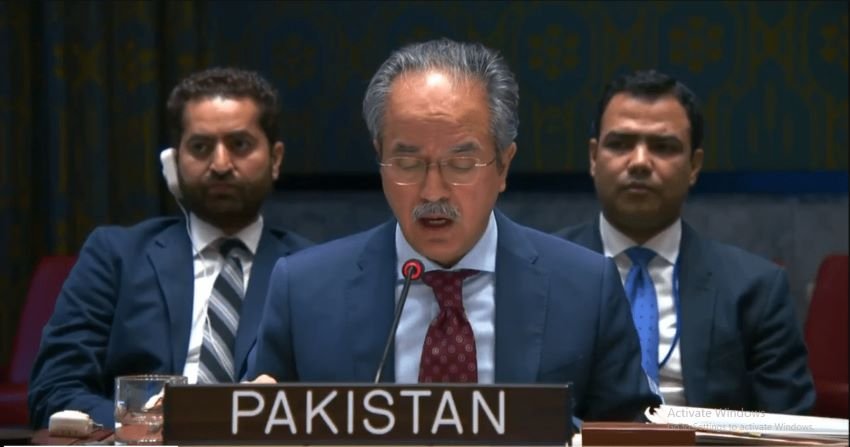United Nations (TDI): Pakistan has called for reforming the multilateral trading system to ensure that it works for all and reflects the needs of developing nations at a United Nations Security Council (UNSC) Arria-formula meeting on “The Impact of Unilateralism and Bullying Practices on International Relations.”
“Trade must serve as a bridge, not a barrier – a means for fostering peace and shared growth, not a tool for dominance or exclusion. Differences should be addressed through dilogue, not imposed through pressure,” Pakistan’s permanent representative at the UN Ambassador Asim Iftikhar Ahmad told the meeting.
“Only then can we develop genuine trust in a rules-based international order,” he said, stressing the importance of restoring faith in multilateralism and collective action.
Arria Formula meetings are informal gatherings that enable UNSC members to have a frank and private discussion on relevant subjects.
At the outset, China, which convened the 15-member UNSC meeting, accused the US of using tariffs to bully other nations.
“Under the pretext of reciprocity and fairness, Washington is pursuing a zero-sum approach, undermining the global economic and trade order through tariffs, prioritizing US interests over global welfare, and advancing hegemonic ambitions at the expense of other nations,” China’s UN Ambassador Fu Cong said in his opening remarks.
In his comments, the Pakistani envoy urged promoting dialogue and diplomacy, rejecting zero-sum approaches, avoiding confrontation, and advancing mutually beneficial collaboration.
“We must revive faith in multilateralism and collective action,” Ambassador Asim insisted.
He added that the world today stands at a crossroads, facing wars, economic turmoil, inequality and climate crisis, all posing serious threats to global peace and security.
Read More: Lasting Peace in Colombia Requires National Ownership: Pakistan
“We are also witnessing the unraveling of hard-won norms that have fortified global peace and collaboration for decades”.
“We must ask if the global community can afford another era of might over right. Can it endure further chaos after the death and destruction witnessed in the wars and conflicts raging in the Middle East, Africa and Europe, with other major disputes posing a threat to international peace and security elsewhere,” he said.
Read More: Pakistan Urges Stability as Haiti Teeters Amid Gang Violence
He said that history reminds us that lasting peace and sustainable solutions have never come from coercive or unilateral actions. They came from inclusion, respect, shared prosperity and unified responses.
Farkhund Yousafzai is an Associate Editor at The Diplomatic Insight.



